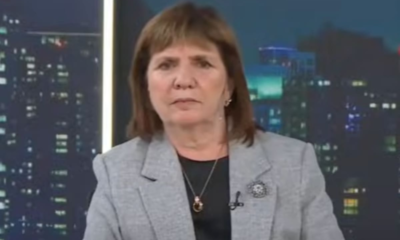INTERNACIONAL
Trump steams ahead on these campaign promises as he reaches 100 days in office
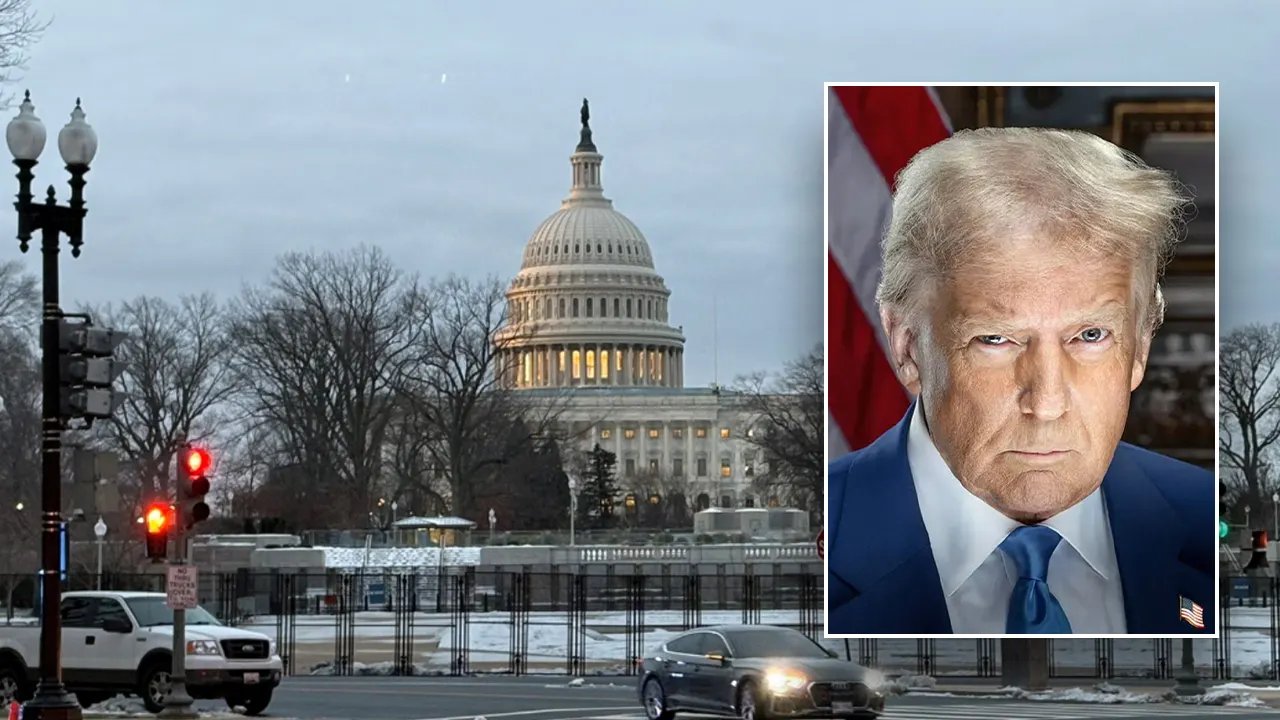
President Donald Trump is now at the finish line of his first 100 days of his second term in the White House, as of Tuesday.
Key tenants of Trump’s first 100 days include imposing harsh tariffs on Chinese imports, starting and continuing peace negotiations between Russia and Ukraine, unveiling plans to dismantle organizations like the Education Department and cracking down on border security amid a mass deportation initiative.
The period also marked a steep increase in executive orders in comparison to previous presidents. Altogether, Trump has signed over 140 executive orders during his first 100 days in office during his second term. That is an increase from the 33 he signed during the first 100 days of his first term, and up from the previous record of 99 that former President Franklin Delano Roosevelt signed during that same timeframe.
The Trump administration’s mass deportation effort is in full force, and border czar Tom Homan told reporters Monday that border crossings were down by 96% under the Trump administration.
WHITE HOUSE TOUTS 100-DAY ILLEGAL IMMIGRATION CRACKDOWN AFTER BIDEN ‘UNSECURED THE BORDER ON PURPOSE’
White House press secretary Karoline Leavitt speaks as White House «border czar» Tom Homan looks on during the daily briefing in the Brady Briefing Room of the White House in Washington, D.C., on April 28, 2025. (Jim Watson/AFP via Getty Images)
Additionally, the White House said earlier in April it has deported more than 100,000 illegal immigrants in 2025. The administration’s handling of these deportations has attracted scrutiny in certain high-profile cases, including one involving El Salvador native Kilmar Abrego Garcia, who the Trump administration claimed in court filings was deported by mistake.
However, the Trump administration has since said Garcia is a member of the MS-13 gang and has released protective order documents from his wife.
Following through on another campaign promise, the Trump administration unveiled sweeping tariffs against a host of countries on April 2, after historically lambasting other countries’ trade practices and accusing them of engaging in unfair trade practices against the U.S.
«For decades, our country has been looted, pillaged, raped and plundered by nations near and far, both friend and foe alike,» Trump said April 2 at the White House.
The administration later walked back its initial proposal, and announced April 9 it would immediately hike tariffs on Chinese goods to 145% but scale back reciprocal tariffs on other countries for 90 days to a baseline of 10%. In response, China proceeded to boost its tariffs on U.S. goods to 125%.
Additionally, Trump signed an executive order on March 20 to overhaul the Education Department — following through on a campaign promise he made to eliminate the federal government’s influence over education and «stop the abuse of your taxpayer dollars to indoctrinate America’s youth.»
TRUMP’S EXECUTIVE ORDER SURGE: THE UNPRECEDENTED USE OF PRESIDENTIAL AUTHORITY
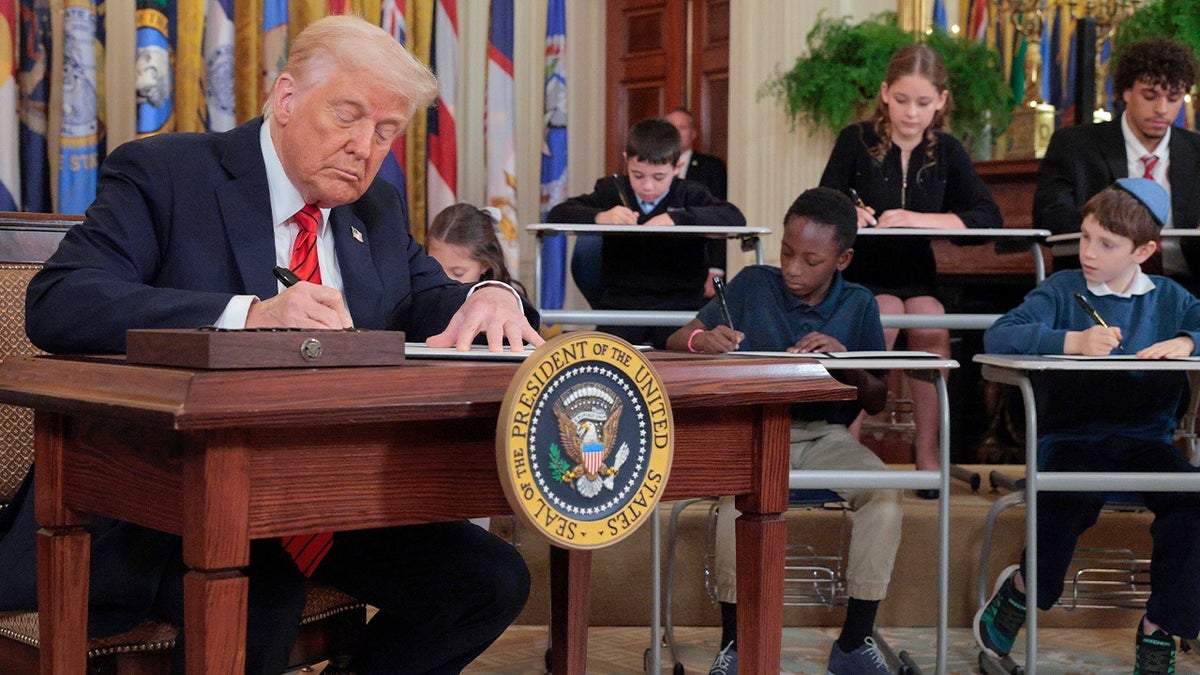
President Donald Trump signs an executive order to reduce the size and scope of the Education Department alongside school children signing their own versions, during a ceremony in the East Room of the White House on March 20, 2025. (Getty)
A White House fact sheet on the executive order said the directive aims to «turn over education to families instead of bureaucracies» and instructs Education Secretary Linda McMahon to «take all necessary steps to facilitate the closure of the Department of Education and return education authority to the States, while continuing to ensure the effective and uninterrupted delivery of services, programs, and benefits on which Americans rely.»
Still, Trump revealed that functions of the department overseeing Pell Grants, student loans and others that provide services for those with special needs would continue at other agencies.
Likewise, Trump has long called for an end to the conflict between Russia and Ukraine and promised to end the conflict between the two within 24 hours during his time on the campaign trail.
TRUMP REPORTS ILLEGAL IMMIGRANT ENCOUNTERS AT HISTORIC LOWS DURING FIRST FULL MONTH IN OFFICE
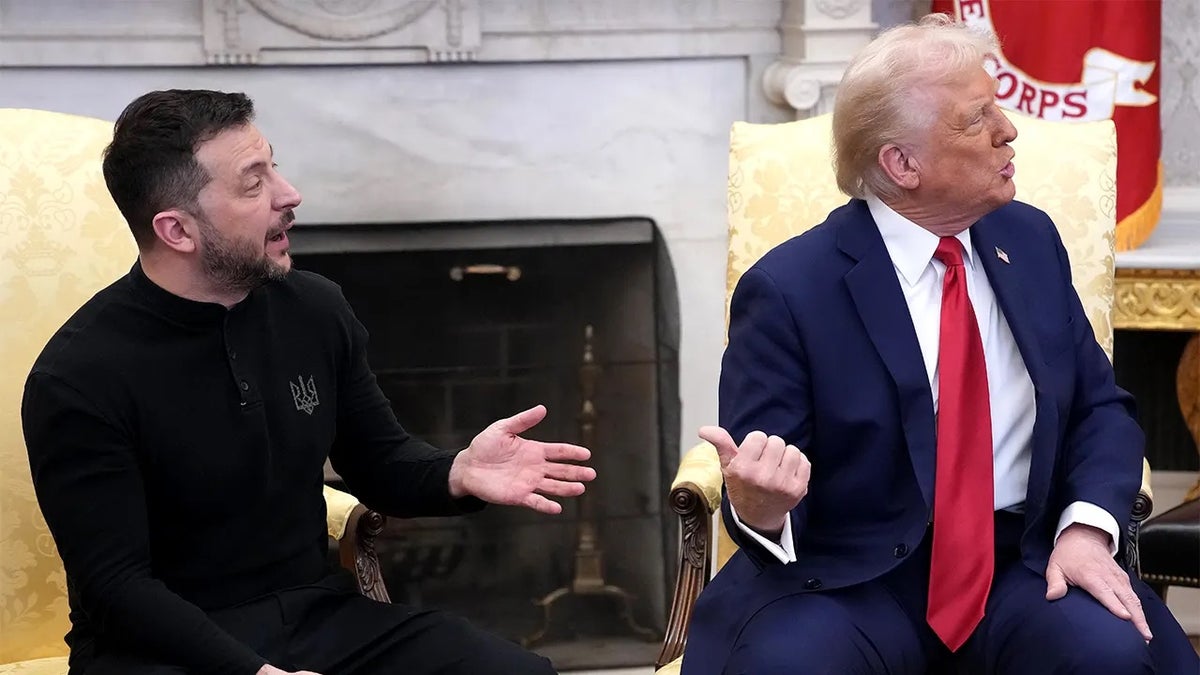
President Donald Trump, right, and Ukrainian President Volodymyr Zelenskyy sparred during Zelenskyy’s visit to the White House in February but have since picked up peace discussions to end the conflict with Russia. (Getty)
Still, he has continued to advance negotiations during his first 100 days in office — including hosting Ukrainian President Volodymyr Zelenskyy to the White House in February. Trump said Sunday that he is aiming to end the war in the next two weeks or so and that he wants Russian President Vladimir Putin to stop launching strikes against Kyiv.
CLICK HERE TO GET THE FOX NEWS APP
«I want him to stop shooting, sit down and sign a deal,» Trump told reporters Sunday on the way back from Italy for Pope Francis’ funeral. «We have the confines of a deal I believe and I want him to sign it and be done with it and just go back to life.»
Trump’s First 100 Days,White House,Donald Trump,Immigration,Economy
INTERNACIONAL
New Jersey’s ban on privately operated ICE detention centers struck down by court
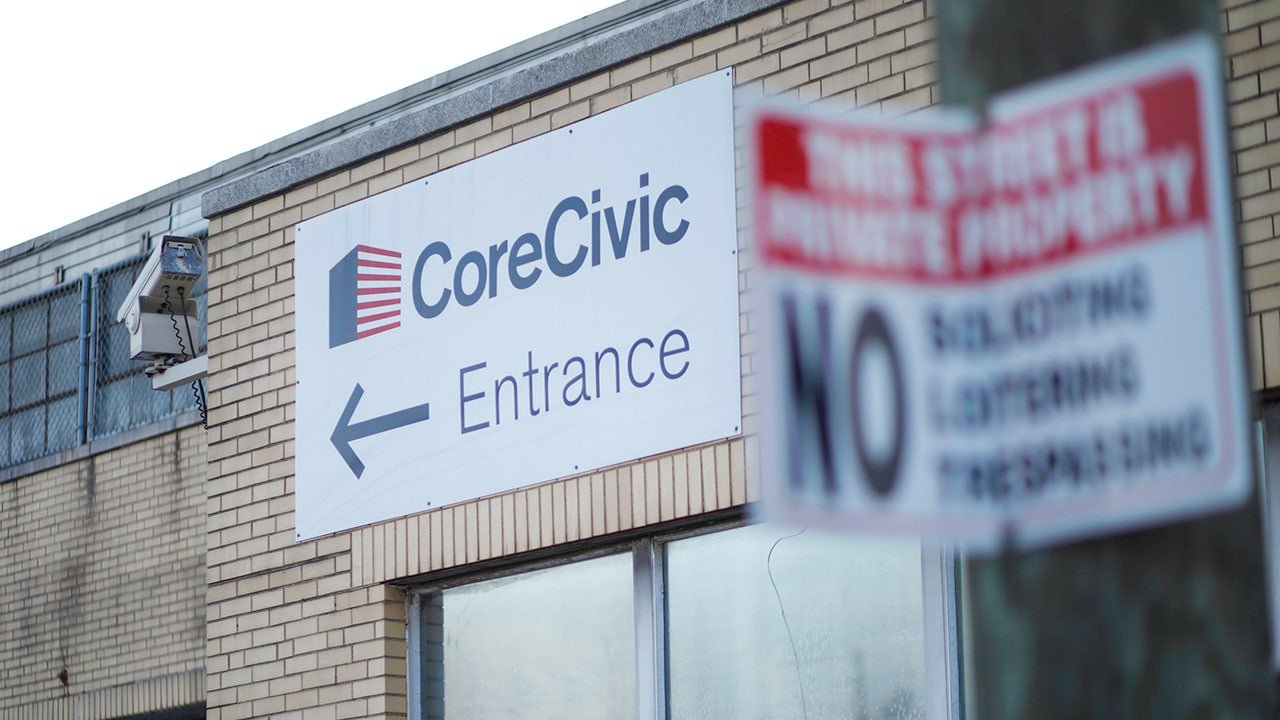
NEWYou can now listen to Fox News articles!
A U.S. appeals court struck down a law in New Jersey that prevented the federal government from contracting with private firms to operate immigration detention centers across the state.
The court’s 2-1 ruling marked a victory for President Donald Trump and his administration during their ongoing illegal immigration crackdown across the country.
One of the Trump administration’s efforts has been to expand a network of detention centers in preparation for the deportations of dangerous illegal aliens.
The court’s ruling also means CoreCivic Corp., a private prison firm, can continue to operate the Elizabeth Contract Detention Facility, which is one of the centers ramping up deportations.
DEM REP TO PLEAD NOT GUILTY TO FEDERAL CHARGES FOR INCIDENT AT NEWARK ICE FACILITY
A federal appeals court overturned a New Jersey law that blocked private immigration detention centers, citing interference with federal immigration powers. (Kena Betancur/VIEWpress)
In the decision, U.S. Circuit Judge Stephanos Bibas, who was appointed to the post by Trump, wrote, «Just as states cannot regulate the federal government itself, they cannot regulate private parties in a way that severely undercuts a federal function.»
Bibas added that the law «interferes with the federal government’s core power to enforce immigration laws.»
New Jersey Gov. Phil Murphy, a Democrat, signed a law in 2021 that barred CoreCivic from renewing its agreement with U.S. Immigration and Customs Enforcement (ICE) to continue operating the Elizabeth Detention Center.
DEM REP MCIVER EXPECTED TO MAKE FIRST COURT APPEARANCE AFTER NEWARK INCIDENT
CoreCivic ultimately sued the state, resulting in a district court judge siding with the private firm. The state then appealed the ruling to the 3rd U.S. Circuit Court and received a decision counter to what it had hoped.
New Jersey Attorney General Matthew Platkin expressed disappointment about the decision in a post on X on Tuesday.
DEM LAWMAKERS DEFEND ‘STORMING’ OF ICE FACILITY, SAY TRUMP ADMIN IS ‘LYING AT ALL LEVELS’
«As recent events at Delaney Hall underscore, entrusting detention to for-profit companies poses grave risks to health and safety, and as the dissenting judge noted, States retain broad latitude to protect the health and safety of people within their borders – particularly where, as here, there is no conflict with federal legislation,» Platkin wrote, in part.
Platkin added he is evaluating the next steps in the case.
CoreCivic’s Ryan Gustin told Fox News Digital that the company has «played a limited but important role» in the U.S. immigration center at the Elizabeth facility for more than 25 years.
«We appreciate that we’ve had the opportunity to present our positions to the courts and are grateful to the 3rd Circuit Court of Appeals for reaffirming the federal government’s discretion to rely on the Elizabeth Detention Center to support its vital mission,» Gustin said.
DEM CONGRESS MEMBERS STORM NEW JERSEY ICE PRISON TO CONDUCT ‘OVERSIGHT VISIT’: ‘PEOPLE DESERVE DIGNITY’
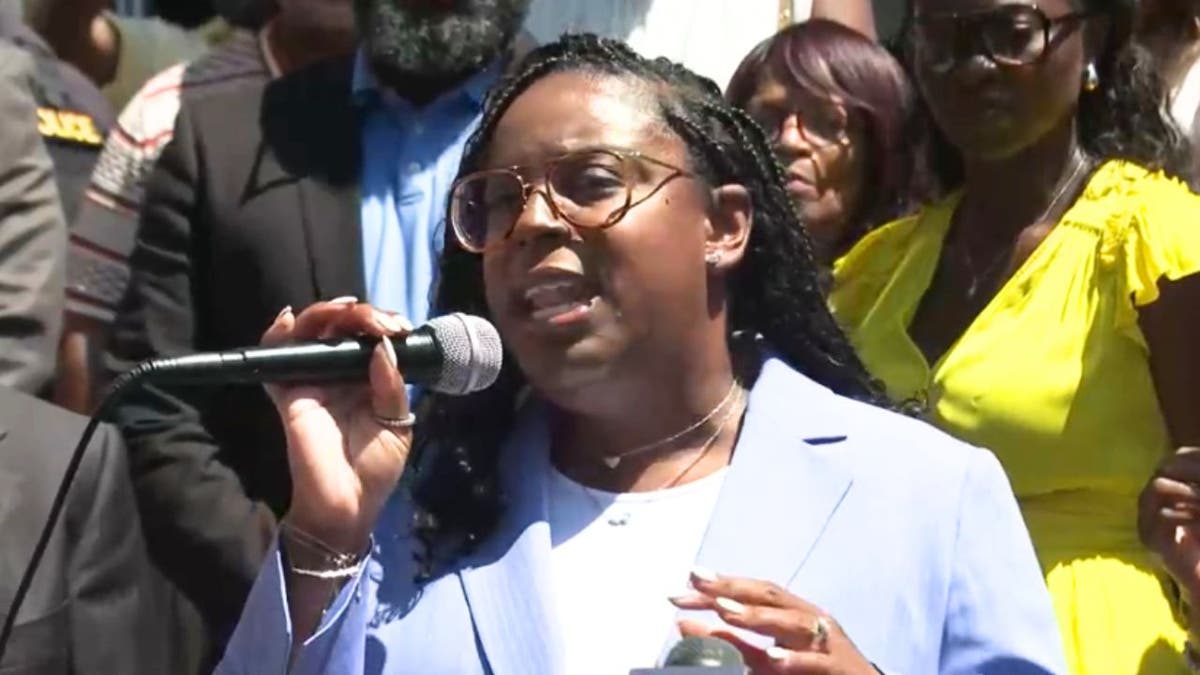
Rep. LaMonica McIver, D-N.J., has pleaded not guilty to allegedly obstructing Homeland Security agents during an altercation outside a Newark, New Jersey, immigration facility last month. (Fox News)
Rep. LaMonica McIver, D-N.J., was hit with a federal indictment for allegedly obstructing Homeland Security agents during an incident outside the Delaney Hall immigration detention center in Newark on May 9.
McIver and two other members of Congress said they were conducting a congressional oversight visit that coincided with an immigration protest when a clash ensued with federal agents.
According to the DOJ, Newark Mayor Ras Baraka was allowed into the facility’s secured area and refused to follow federal agents’ warnings to leave.
CLICK HERE TO GET THE FOX NEWS APP
When officers tried to arrest him, McIver allegedly put her arms around the mayor and «slammed her forearm» into one officer while grabbing another and using both of her forearms to forcibly strike the second officer.
McIver has pleaded not guilty to the charges.
Fox News Digital’s Michael Dorgan and The Associated Press contributed to this report.
INTERNACIONAL
Disputed fire by ancient church in Holy Land sparks diplomatic, religious fallout
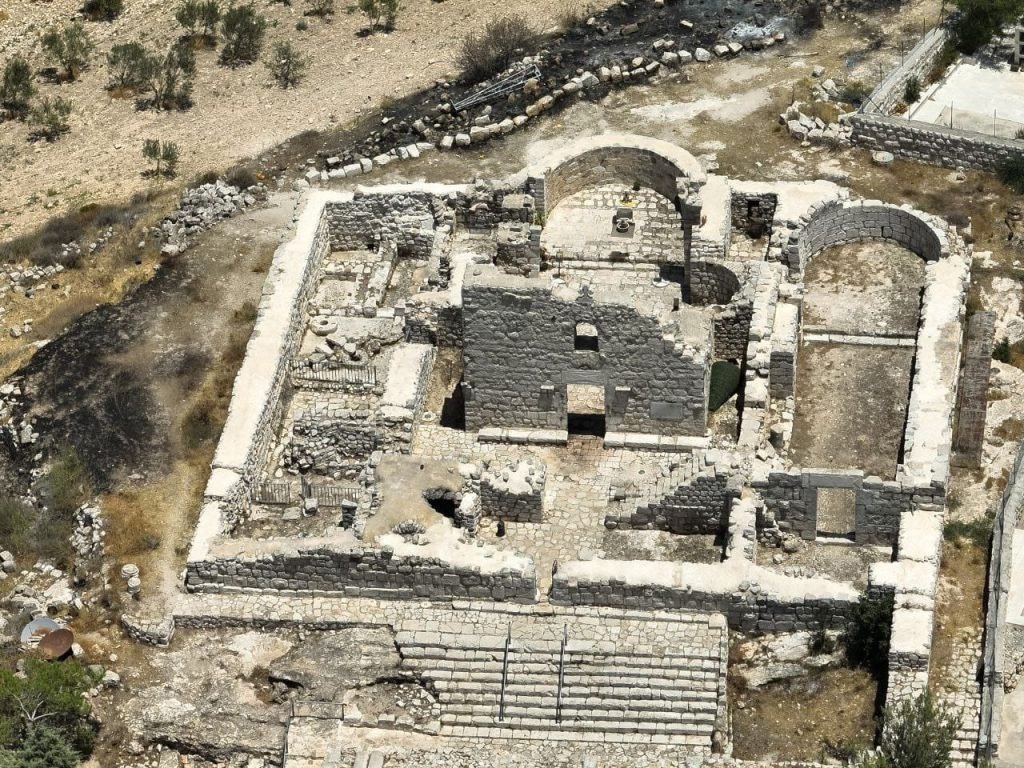
NEWYou can now listen to Fox News articles!
Israeli police late Monday dismissed reports alleging that Jewish settlers set fire to the archaeological site of the Church of St. George in the village of Taybeh in the West Bank, calling them «factually incorrect,» lacking evidence and potentially misleading to the public.
According to police, a probe was launched last Thursday by a specialized team within the Judea and Samaria Central Investigations Unit (YAMAR) under the direction of the district commander. An internal committee was also tasked with reviewing the timeline of events recorded in police information systems, assessing the handling of reports and complaints, and evaluating the response.
«Findings gathered on the ground unequivocally show that no damage or harm was caused to the holy site itself,» police said.
DISPUTE OVER CHRISTIAN GROUPS’ VISAS TO ISRAEL RESOLVED AFTER HUCKABEE THREAT
An aerial view of Taybeh shows the remnants of a fire in a field located adjacent to the Church of St. George. (Courtesy: Israel Police)
The statement noted that a small fire had occurred in an open area near the site, but no buildings, crops or infrastructure were damaged.
On Tuesday, U.S. Ambassador to Israel Mike Huckabee noted on X that Taybeh was «a beautiful village made up of mostly Arab Christians. Glad [the Israel Police] continue [to] search for truth [without] regard to assumptions.»
Huckabee pointedly added: «I have NOT attributed the cause of fire to any person or group as we don’t know for sure. The press has. I have said that regardless, it was [a] crime [and] deserves consequences.»
An exclusive investigation by The Press Service of Israel (TPS-IL) first raised questions over the fire, having uncovered evidence that local Jewish residents had participated in firefighting efforts near the church and raised significant doubts about the cause of the blaze.
TPS-IL also documented additional fires on July 7, 8 and 11 in nearby pastureland, located dozens of meters from the church compound. In each instance, a Jewish farmer with a property adjacent to the site filed complaints with police, claiming the areas where animals were grazing had been deliberately set ablaze.
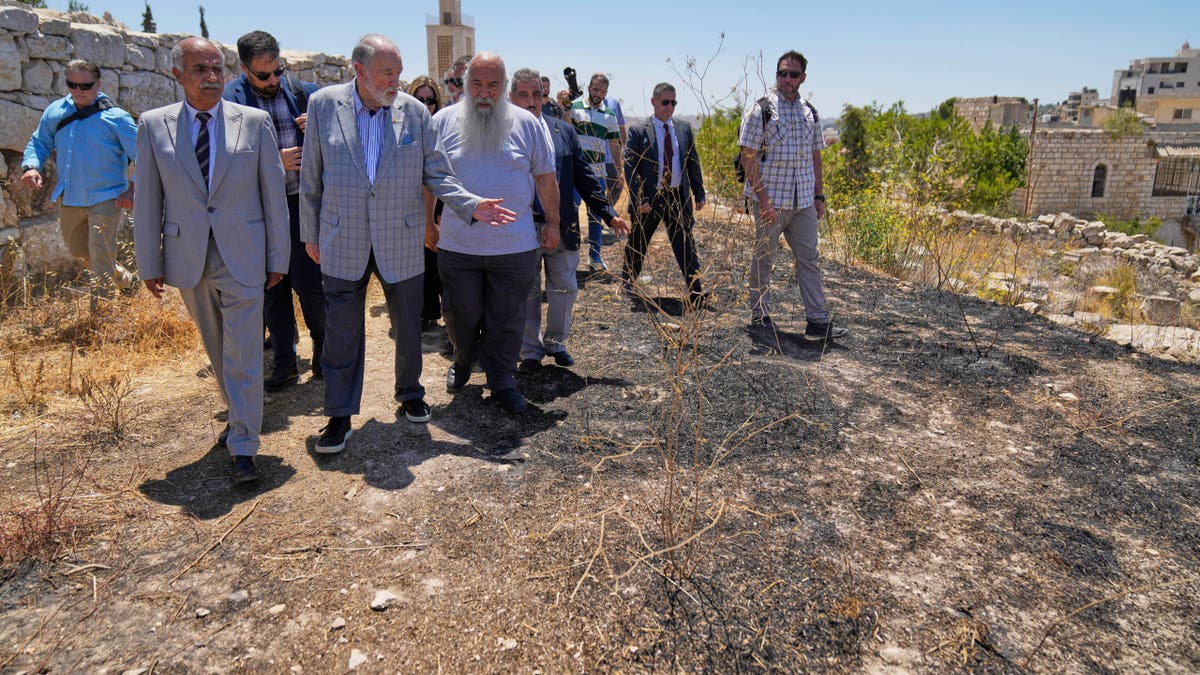
Ambassador to Israel Mike Huckabee during a tour of the Church of St. George area, the site of a fire, during his visit to the West Bank town of Taybeh, east of Ramallah Saturday, July 19, 2025. (AP Photo/Nasser Nasser)
Last weekend, Huckabee visited Taybeh, where he called for accountability. «To commit an act of sacrilege by desecrating a place that is supposed to be a place of worship, it is an act of terror, and it is a crime,» he said in a statement released by the U.S. Embassy in Jerusalem. «There should be consequences, and it should be harsh consequences because it is one of the last bastions of our civilization, the places where we worship.»
The visit came after the Council of Patriarchs and Heads of Churches of Jerusalem issued a statement claiming that «radical Israelis from nearby settlements intentionally set fire near the town’s cemetery and the Church of Saint George.»
A joint statement days earlier from the priests of the three churches in Taybeh – the Greek Orthodox Church, the Melkite Greek Catholic Church and the Roman Catholic Church – blamed «Israeli settlers» for «deliberately ignit[ing] a fire near the town’s cemetery and the historic Church of Saint George (Al-Khadr), a fifth-century site considered one of the oldest religious landmarks in Palestine.»
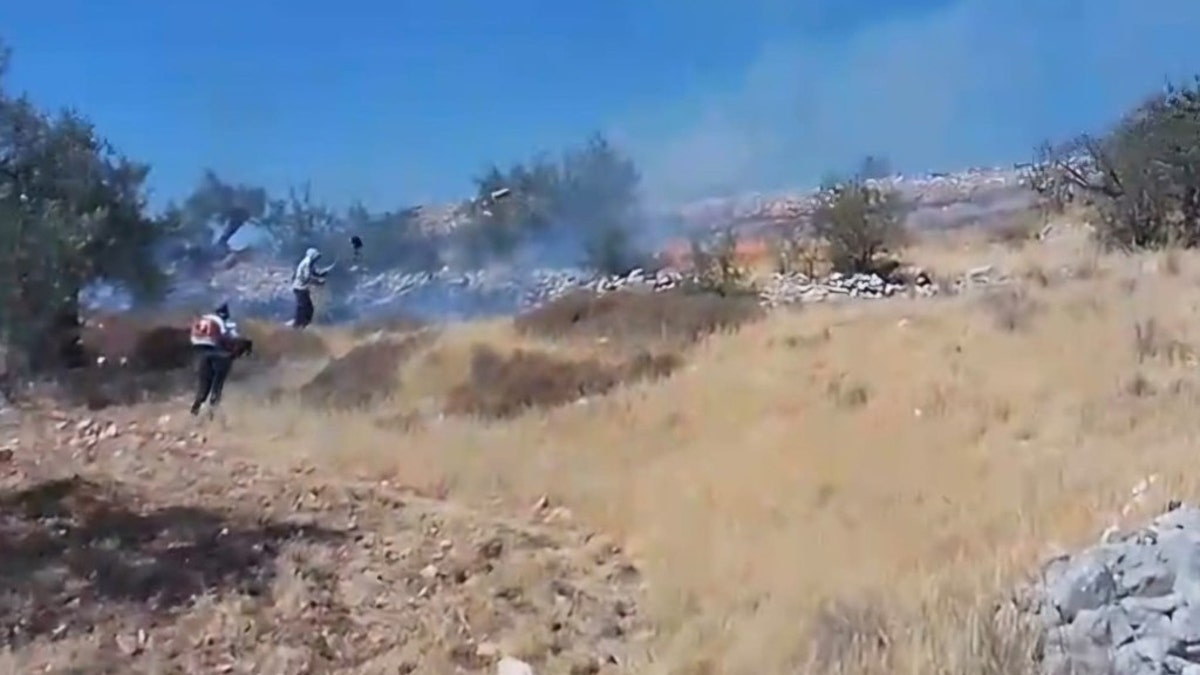
A screenshot shows two Israeli shepherds trying to put out a fire near the Byzantine-period church in the Palestinian village of Taybeh on July 7, 2025. (TPS-IL)
HUCKABEE DEMANDS ISRAEL ‘AGGRESSIVELY INVESTIGATE’ MURDER OF PALESTINIAN-AMERICAN KILLED IN ‘TERRORIST ACT’
Greek Orthodox Patriarch of Jerusalem Theophilos III accused «radical Israelis from nearby settlements» of «a targeted attack.»
Dan Diker, president of the Jerusalem Center for Security and Foreign Affairs, told Fox News Digital that Israel must take a more assertive approach in handling incidents that could impact its international standing.
«We are in the middle of the most consequential war since the founding of the state, and events like this are just as dangerous,» he said.
He emphasized the importance of reinforcing Israel’s role in safeguarding Christian heritage and holy sites, particularly in contested areas.
«This includes exposing the PLO and Hamas’ ongoing war against Christian citizens, but it also requires transparency and assertiveness in showing our role as guardians of Christian sites and civilization in Judea, Samaria and Jerusalem,» said Diker.
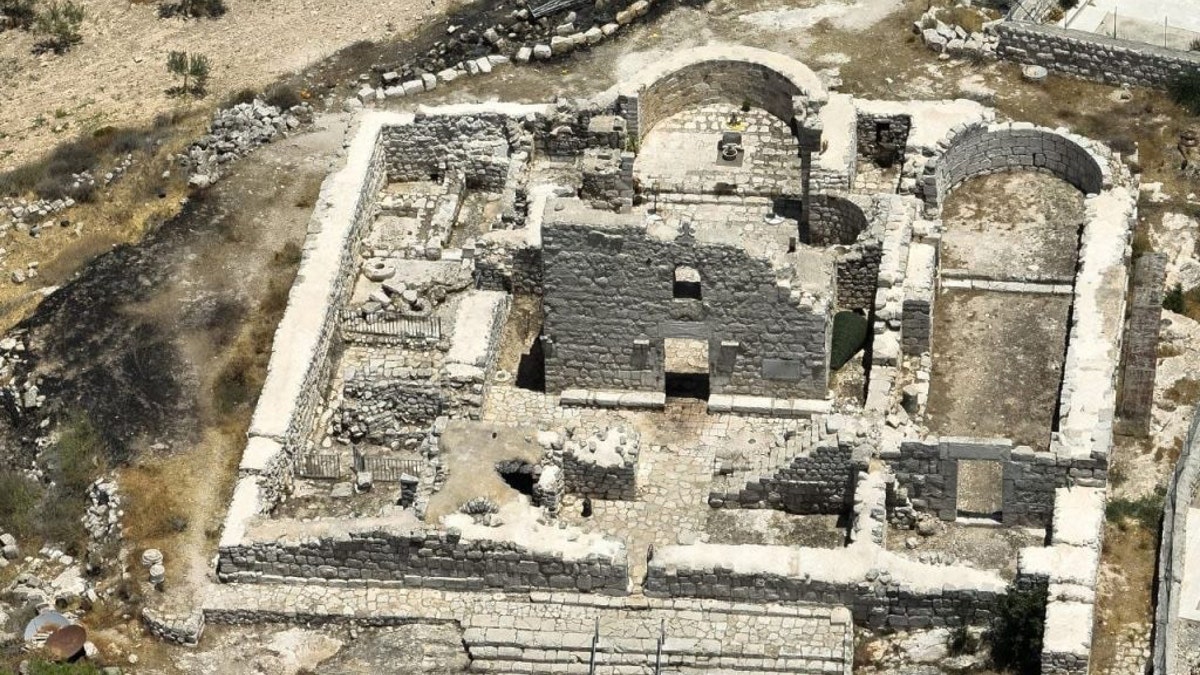
An aerial view showing St. George church on the West Bank. (TPS-IL)
He also pointed to what he described as a coordinated effort by the Palestinian leadership to undermine Israel’s legitimacy on the global stage, particularly through the media.
«We are in the midst of an international crusade by the Palestinian leadership to uproot our legitimacy,» he said. «The international media has become an ecosystem for the defamation and delegitimization of Israel. They are weaponizing every event into an existential assault.»
On Monday night, the Binyamin Regional Council, which administers Jewish communities in southern Samaria, confirmed the church incurred no damage.
«Here I am on the outskirts of the church. You can see the apse over here. And even on the outskirts or the outer walls, there are no signs of fire,» the council’s international spokeswoman, Eliana Passentin, said in a video.
«We are the guardians of the biblical heartland. This land was given to us by God – there is no reason for us to burn a church or to disrespect anyone else’s religion,» she added.
Speaking to Fox News Digital on Tuesday, Passentin recalled bringing visitors to the local brewery in Taybeh, which was so well-regarded that a rabbi granted it kosher certification. She noted that Israelis and Christian Arabs had coexisted peacefully in the area for years, but expressed concern that the community now identifies itself with a Palestinian state that does not formally exist.
CLICK HERE TO GET THE FOX NEWS APP
«When I was walking around, one of the priests in Taybeh said he believed in the two-state solution and it felt as if the P.A. was putting a lot of pressure on the Christians,» Passentin said.
She suggested that the latest crisis was manufactured by those seeking to divide Jews and Christians, whom she described as joint guardians of Judea and Samaria.
«We are striving for peace,» she said. «This is the land of the Bible, and we should be building it together – not fighting or spreading false blood libels accusing Jews of burning down a church.»
INTERNACIONAL
Denuncian que las fuerzas de Israel mataron desde mayo a más de 1.000 palestinos que buscaban alimentos en Gaza
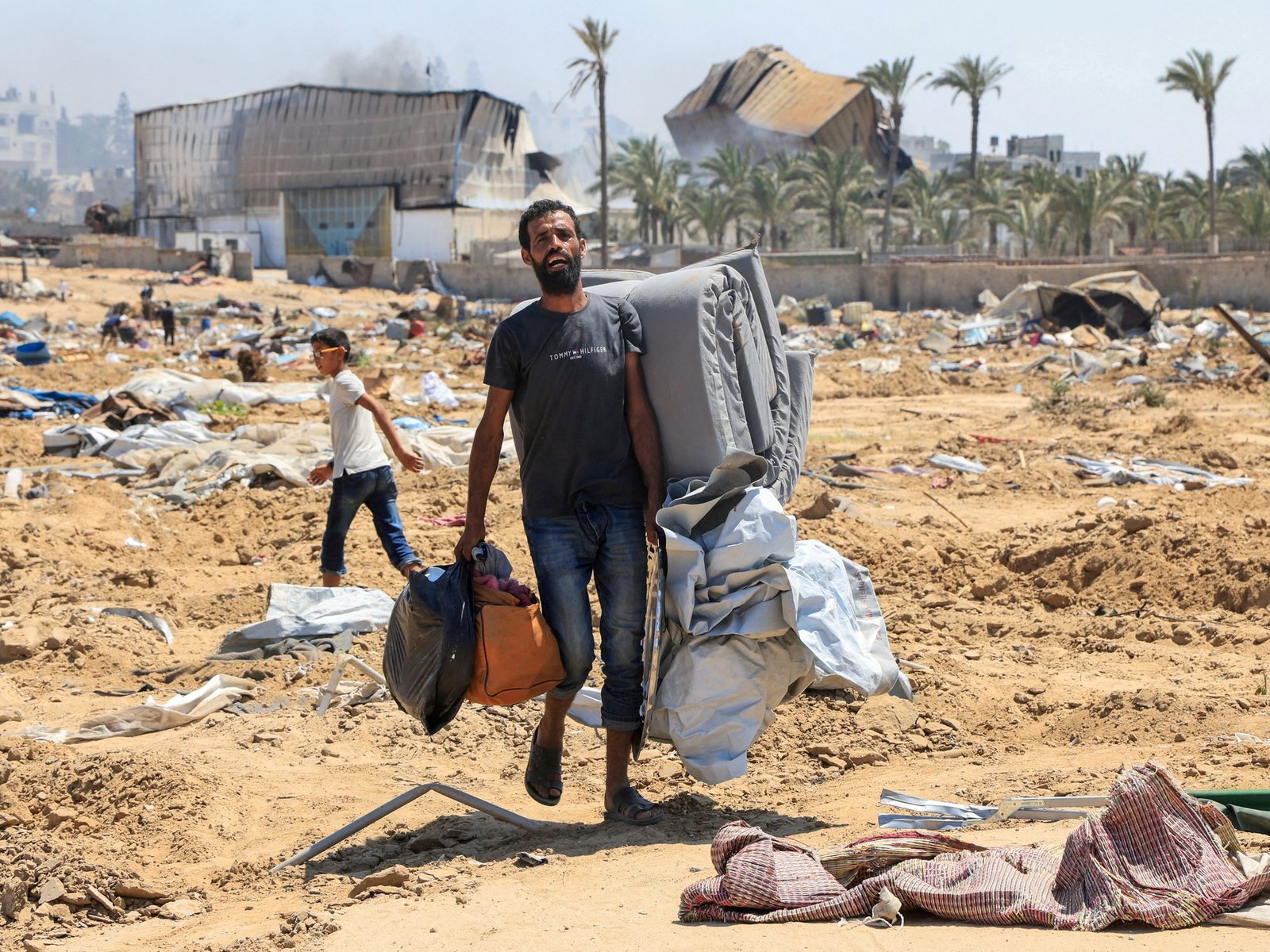
“Lo hago por mis hijos”
Critican modelo de entrega de ayuda
Ataques a tiendas que albergan a desplazados
Israel,Franja de Gaza,Hamas

 POLITICA2 días ago
POLITICA2 días agoExpulsada del Gobierno, Victoria Villarruel empieza a tomar distancia, pero no tiene proyecto político para este año

 POLITICA2 días ago
POLITICA2 días agoLa CGT evalúa adelantar a octubre el recambio de sus autoridades y define una movilización contra Milei

 POLITICA1 día ago
POLITICA1 día ago🗳️ El chamuyo de las elecciones en la Provincia: se postulan, pero no a asumen
























